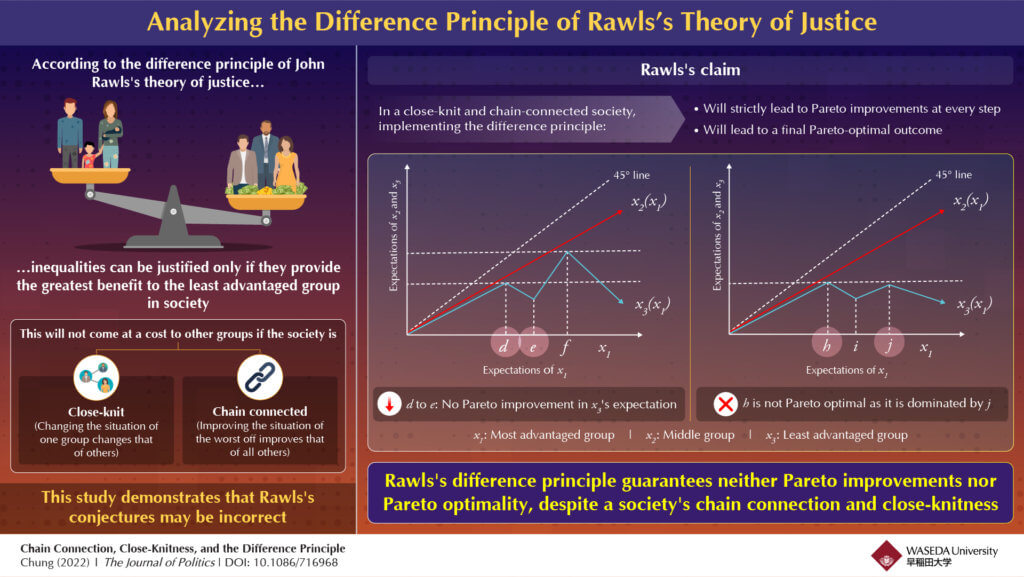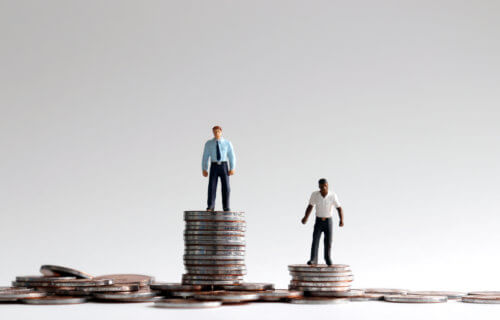TOKYO, Japan — There’s an old saying that “a rising tide lifts all boats,” meaning that improving one thing generally benefits all aspects connected to it. So, what happens when you only try to improve one aspect of society — like income inequality? A new study finds policies which specifically focus on benefiting the least advantaged members of society don’t end up helping everyone else.
Researcher Hun Chung from Waseda University argues that social policies which preach “distributive justice” fail to deliver on their promises of improving society as a whole by maximizing the benefits that a community’s poorest members receive.
This “difference principle” is the concept of John Rawls. The 20th century political philosopher believed that maximizing benefits for the least-favored groups in society would eventually allow every group to profit and reach an “optimum state.” Rawls proposed a theory of distributive justice, called “justice as fairness.”
According to the theory, once a community guarantees equal basic rights for everybody, the government can then regulate out any leftover social and economic inequalities. Rawls’s difference principle states that any inequalities are justifiable as long as they provide greater benefits for the poorest members of society.
The philosopher argued that if society is “chain-connected” — meaning that improving the lives of the least advantaged improves the lives of everyone — and “close-knit” — meaning that any changes in one group affect all groups — then no one needs to worry about only benefiting the poor, because others will benefit as well.
Chung says this doesn’t work in the real world
The new study in the Journal of Politics contends that this philosophy is incorrect.
Chung looked at a close-knit and chain-connected society with three groups: the rich, the poor, and the middle class. The researcher began at a point where each class had the same level of economic benefit. From there, society naturally develops and inequalities grow. Under these conditions, those with the most tend to see their lives improve, with economists hoping that this “trickles down” to everyone else.
In Chung’s experiment, society has to choose a point where they start focusing on giving the least advantaged group the most benefits. If Rawls was correct, every time society employs the difference principle, society would continue to improve towards a more equal state.
However, Chung found that there are cases where the expectations of the poor actually fall with an increase in benefits for the privileged, even if these steps will supposedly lead to a more equitable social state. Therefore, the theory that using the difference principle at each new stage in society leads to more equality does not hold up.
The study also found that, even in an “optimum state,” there are situations where other groups are able to further improve their situations without worsening the situation of the poor. Simply put, the difference principle can fail to lead to a perfectly equal state.

Your heart may be in the right place, but your head isn’t
“Political philosophy serves as the foundation for a society’s basic political and economic institutions, and can have a profound impact on people’s lives,” Chung explains in a university release.
Despite this, the researcher says there are gaps in even the most altruistic social plans. The study also found “critical flaws” in the difference principle because it fails to provide continuous ethical judgments. This means the policy can create significantly different ethical evaluations in regard to small ethical differences.
“My research can make policy designers become self-aware of the potential and unintended (negative) effects of certain policies that aim to improve the situation of a specific targeted social group,” the study author explains.
Chung concludes by saying that the theory of distributive justice may have its heart in the right place, but the head needs to be there as well. Policymakers need to use more consideration when tailoring their plans for society and their attempts to improve the quality of life of the poor and others.
